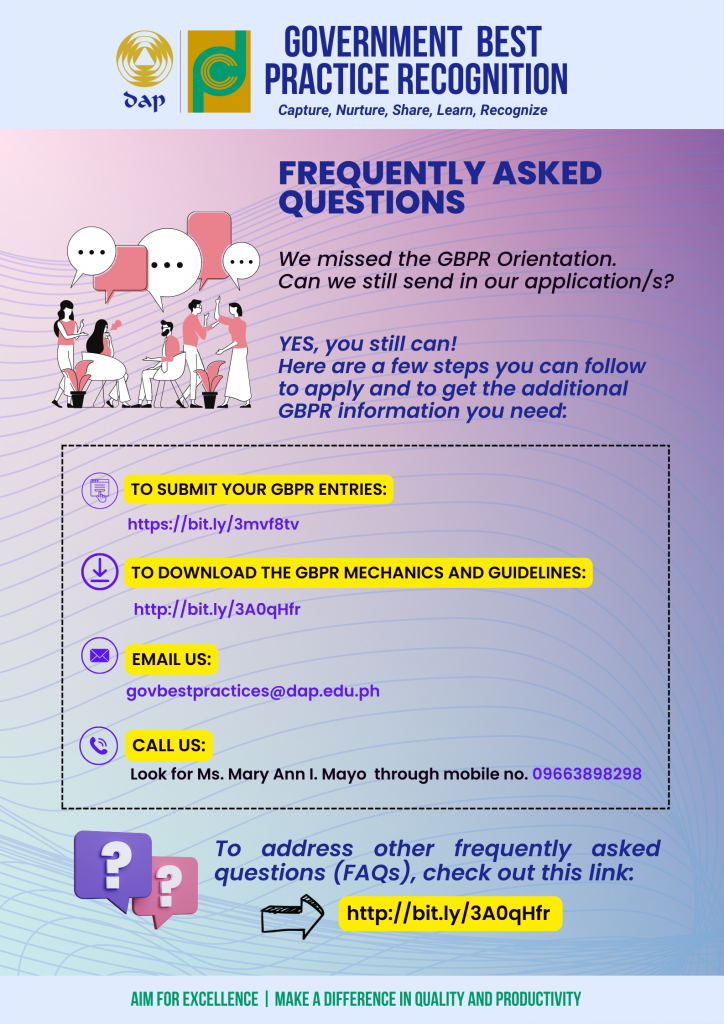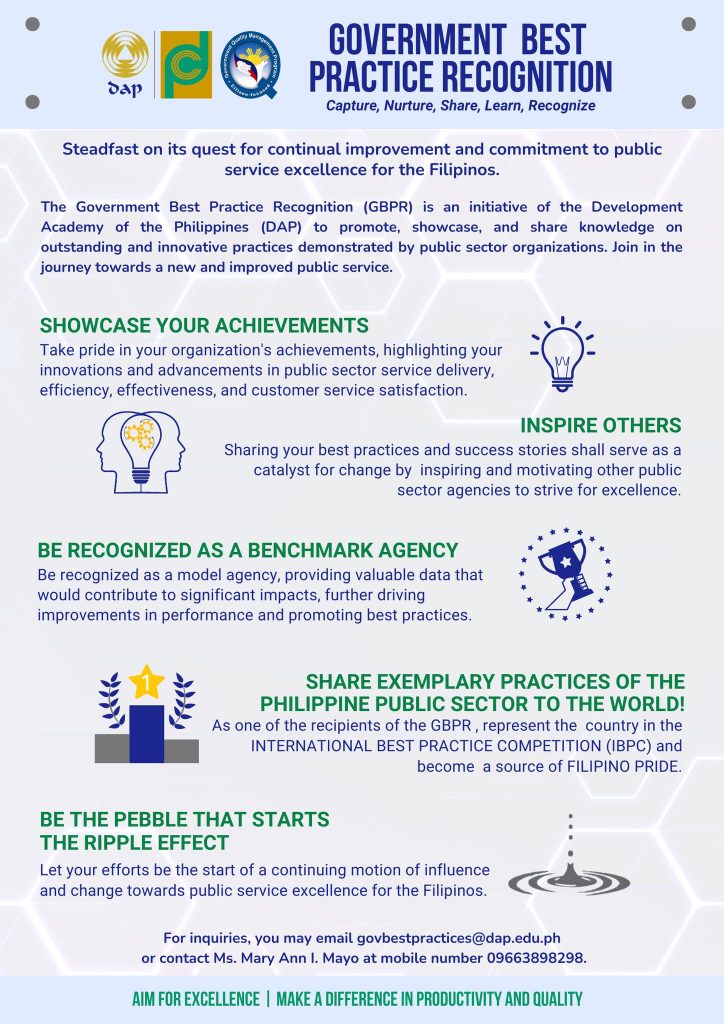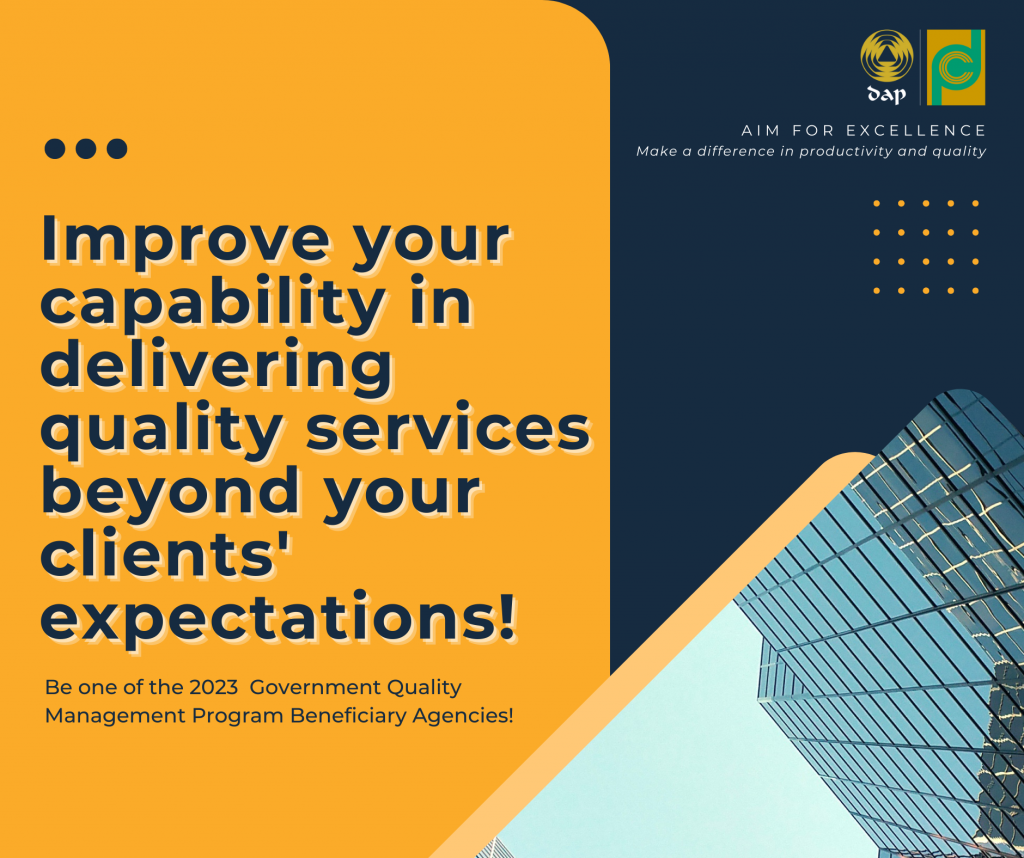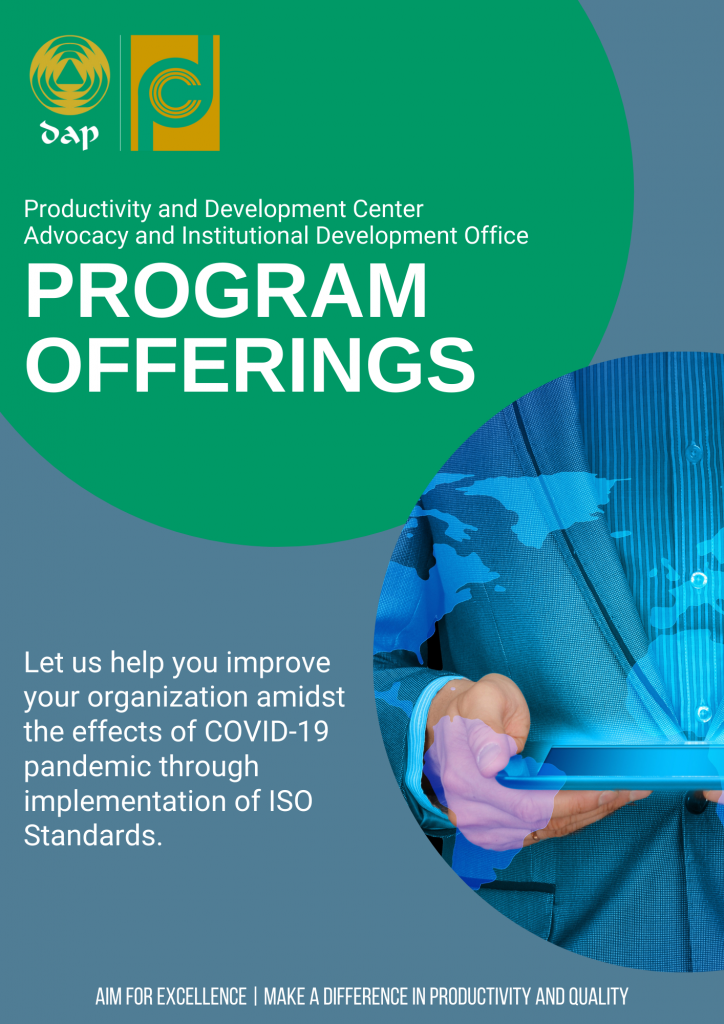The training aims to:
a. Introduce the concept of social enterprises (SEs) and how they contribute to the agribusiness sector;
b. Learn about innovative supply chain models as a critical component of SEs in the agribusiness sector; and
c. Acquire the knowledge and skills necessary to be effective trainers for developing future-ready agribusiness SEs.
The Training of Trainers aims to introduce the concept of social enterprises (SEs) and how they contribute to the agribusiness sector. It will help the participants to learn about the innovative supply chain models as a critical component of SEs in the agribusiness sector and acquire the knowledge and skills necessary to be effective trainers for developing future-ready agribusiness SEs.

Target Participants: 19 International Participants and 12 Local participants
The course is designed to provide a learning opportunity for the participants to interpret, and use the PQA Performance Excellence Framework to their organization’s best advantage, whether for self-assessment, organizational transformation, and/or preparation of an application report for recognition among the Philippines’ best organization.
Aims to support RIA practice by considering costs associated with regulatory compliance such as administrative burdens, substantive compliance costs, administration and enforcement costs, and direct financial costs through the DAP-developed RCM.
Prerequisite: Basic Course on RIA
Target Participants: Regulation authorities (officers, directors, and key technical staff) of local government units, national government agencies, line and staff bureaus, government owned and controlled corporations, and the legislative.
The course aims to develop participants’ knowledge and understanding of quality concepts and principles, and the requirements defined in ISO 9001:2015 standard, and relevant statutory and regulatory requirements. The discussions shall provide an overview on how to establish, implement, maintain, and continually improve the QMS. Workshops and exercises shall be facilitated to enable the participants to demonstrate their interpretation of the requirements, as well as, their skills in drafting the documented information within the context of their organization.
Reservation form: https://forms.gle/KnoWAFet9Jv7rBUz9
The course aims to enable participants to understand and apply the fundamental concepts and practices in creating, sharing and applying knowledge to enhance organizational productivity and growth. It provides a learning opportunity on a quick organizational self-assessment on knowledge management and the various tools used in capturing knowledge and best practices. The course also highlights how knowledge management dovetails with the Philippine Quality Award (PQA) framework and the ISO 30401:2018.
Reservation form: https://forms.gle/UonDrX5MFQkprujL8
Discusses principles and conditions underpinning effective conduct of consultations in regulation-making.
The course aims to develop the participants’ knowledge and understanding of the concepts, principles, techniques, and practices of performing an effective internal audit in accordance with ISO 19011:2018 with focus on auditing quality management system. It shall include a review of the requirements of ISO 9001:2015 standard and how they are applied in the context of an internal audit, with the end goal of improving the established QMS. Workshops and exercises shall be facilitated for the participants to demonstrate their skills in planning and performing an effective internal audit, as well as, reporting of audit findings.
Reservation form: https://forms.gle/wUBHXpufBvFeJrL99
















